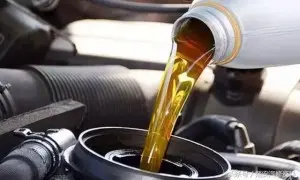10 月 . 07, 2024 05:38 Back to list
hydraulic pressure oil seal
Understanding Hydraulic Pressure Oil Seals Function, Types, and Applications
Hydraulic systems are an integral part of many modern machines and industrial equipment. From construction machinery to automotive systems, these hydraulic systems rely heavily on various components to function effectively. Among those critical components are hydraulic pressure oil seals, which serve to maintain the integrity and performance of hydraulic systems. This article delves into the function, types, and applications of hydraulic pressure oil seals, illustrating their importance in the realm of hydraulic engineering.
Function of Hydraulic Pressure Oil Seals
The primary role of hydraulic pressure oil seals is to prevent the leakage of hydraulic fluids, ensuring that the system remains pressurized. Hydraulic systems operate under significant pressure, and any leaks can lead to diminished performance, increased wear on components, and potential system failure. Oil seals contribute to the overall efficiency of hydraulic systems by ensuring that hydraulic fluids remain contained within them.
In addition to preventing leaks, oil seals also protect internal components from external contaminants, such as dirt, dust, and moisture. These contaminants can adversely affect the performance and longevity of hydraulic systems. By providing a barrier, oil seals help maintain cleaner conditions inside the system, ultimately leading to improved reliability and reduced maintenance costs.
Types of Hydraulic Pressure Oil Seals
Hydraulic pressure oil seals come in various designs and materials, each suited for specific applications and operating conditions. Some of the most common types include
1. Rubber Oil Seals These are perhaps the most widely used due to their flexibility and resistance to high pressures. Rubber seals can withstand a range of temperatures and are effective in preventing leaks in hydraulic cylinders and pumps.
2. PTFE (Teflon) Seals Known for their excellent chemical resistance, PTFE seals are ideal for applications where the hydraulic fluid may be aggressive or corrosive. They also have a low friction coefficient, making them suitable for high-speed applications.
3. Metal-Cased Seals Metal-cased seals offer enhanced durability and are often used in heavy-duty applications. The metal casing provides structural support, making them resilient under extreme conditions.
4. Composite Seals These seals combine different materials to leverage the strengths of each. They are designed for specialized applications where standard materials may fall short.
hydraulic pressure oil seal

5. Lip Seals Featuring a lip that contacts the shaft, lip seals are effective in retaining fluids while minimizing the ingress of contaminants. They are widely used in rotary applications, such as hydraulic motors and actuators.
Applications of Hydraulic Pressure Oil Seals
Hydraulic pressure oil seals find application across a broad spectrum of industries, reflecting their versatility and reliability. Key sectors include
1. Construction and Mining Heavy machinery, including excavators, bulldozers, and cranes, rely on hydraulic systems for power and movement. Oil seals ensure these systems operate smoothly under strenuous conditions.
2. Automotive Industry Hydraulic fluid is integral to various vehicle systems, such as brakes and steering. Oil seals maintain fluid integrity and prevent leaks that could compromise safety.
3. Aerospace In aviation, hydraulic systems control critical functions, including landing gear and flight control surfaces. The performance of these systems is paramount, making reliable oil seals a necessity.
4. Manufacturing Many manufacturing processes involve hydraulic machinery. Oil seals contribute to the efficiency and effectiveness of equipment, minimizing downtime due to leaks.
5. Marine Applications Hydraulic systems are also prevalent in marine vessels. Oil seals help protect hydraulic components from seawater and enhance the reliability of equipment in harsh marine environments.
Conclusion
In summary, hydraulic pressure oil seals play a crucial role in the functionality and reliability of hydraulic systems across various industries. By preventing fluid leaks and protecting internal components from contaminants, these seals ensure optimal performance and longevity of machinery. As technology advances and demands for efficient hydraulic systems increase, the importance of high-quality oil seals will continue to be paramount in engineering applications, paving the way for innovations that could enhance their performance even further.